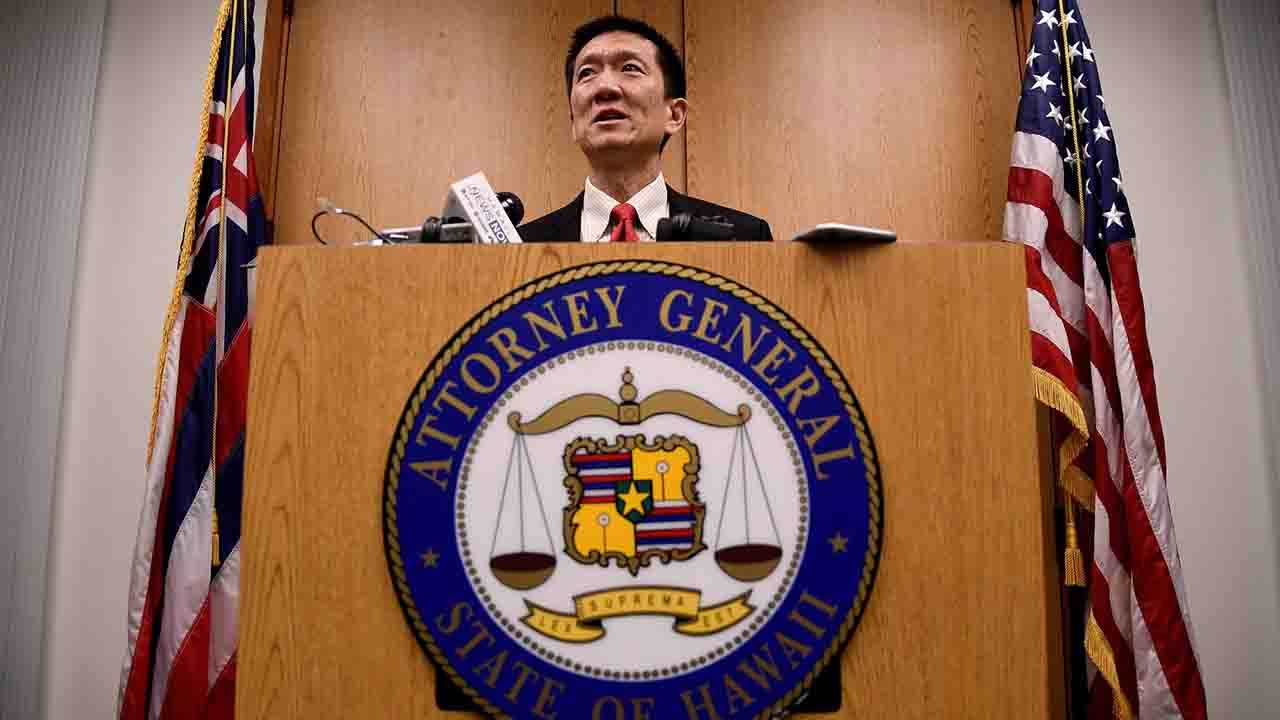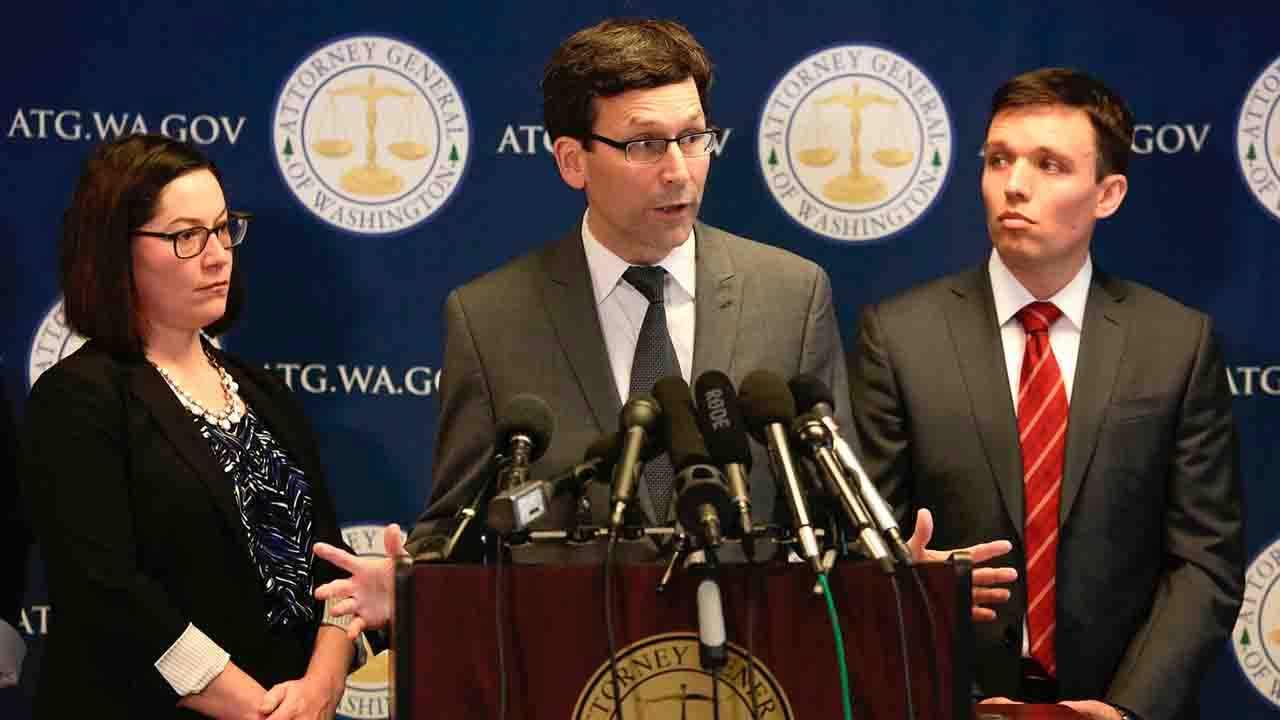Legal challenges to US President Donald Trump's revised travel ban are mounting. Several states now say that they will contest Trump's executive order that temporarily bans the admission of refugees and some travelers from a group of Muslim-majority countries.
The new travel order is set to take effect on March 16, and replaces a more sweeping ban issued on January 27, which led to chaos and protests at airports.
Hawaii filed the first challenge to Trump's new travel ban. The state asked a Hawaii federal court to grant a temporary restraining order, arguing that the new travel ban violates the US Constitution.

Hawaii Attorney General Douglas Chin speaks at a press conference after filing an amended lawsuit against President Donald Trump's new travel ban in Honolulu, Hawaii, on March 9, 2017. /CFP Photo
Washington state and New York have also asked to delay the travel ban after Hawaii launched its lawsuit. Washington state was the first state to sue over the original ban, arguing that the revised version is still subject to the temporary restraining order.
"It's not a new lawsuit, in our view this new executive order contains many of the same legal weaknesses as the first and reinstates some of the identical policies as the original. The importance of the rule of law is it holds everybody to it, even if you are the president, especially if you are the president. You cannot tweet your way out of it, right? It doesn't work that way in a courtroom,” said Bob Ferguson, attorney general of Washington state.

Washington State Attorney General Bob Ferguson gives a press conference asking a federal judge to block US President Donald Trump's revised travel ban by affirming an order blocking the first ban, in Seattle, Washington on March 9, 2017. / CFP Photo
Analysts say the revised order would harm the US's Muslim population, tourism and foreign students. The challenges contend that the ban was unconstitutional and hurt the states' businesses and universities. The Trump administration responded that the new ban, unlike the initial order, won't affect current visa holders.









